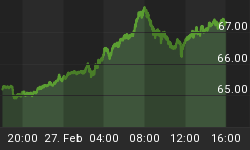Just days after the massive Pandora Papers leak, a total of 136 countries and jurisdictions, representing 90% of the global economy, finally agreed on a minimum corporate tax, following years of resistance.
The agreement would set a minimum tax rate of 15% beginning in 2023 in a bid to force large multinationals to pay taxes in countries where they operate — not just where they have their headquarters.
The Organization for Cooperation and Economic Development (OECD), which hosted the talks that led to the deal, said the plan could generate about $150 billion in tax revenues annually. The global minimum of at least 15% would apply to companies with more than $864 million in revenue.
All G20 countries, including the U.S., the UK, China, and France backed the agreement. Ireland, Hungary and Estonia, all three nations with low tax rates who opposed the deal back in July, are now on board.
Ireland has a corporate tax rate of 12.5%, which has lured companies like Google and Facebook to set up their European operations there. It’s attractive, indeed, considering the U.S. rate of 21% and the UK’s 19%.
Four countries that participated in the talks -- Kenya, Nigeria, Pakistan and Sri Lanka -- have not joined the agreement.
However, experts claim that staying out won't be of much benefit as the agreement includes a "top-up" provision, so that a parent company would get an additional bill if a subsidiary paid less than the minimum.
US Treasury Secretary Janet Yellen, with whom the initiative originated, said the deal "represents a once-in-a-generation accomplishment for economic diplomacy".
“Rather than competing on our ability to offer low corporate rates, America will now compete on the skills of our workers and our capacity to innovate, which is a race we can win," Yellen said in a statement.
However, not everyone was thrilled, of course.
Oxfam International said the 15% rate was too low and would "let big offenders... off the hook" as the corporate tax rate in developed countries averages at 23.5%, well above the agreed 15% floor.
“Instead, it is already being seen by some wealthy nations as an excuse to cut domestic corporate tax rates, risking a new race to the bottom," the group wrote.
The agreement still must be passed by U.S. Congress and be approved by each of the countries.
As for the U.S., some Republicans already blasted the agreement accusing the Biden Administration of “putting politics over progress and surrendering the fate of the U.S. economy to our foreign competitor”.
“Rather than securing an agreement that would provide certainty and immediately eliminate digital services taxes, the Administration has instead used this global forum to advance its short-sighted domestic tax agenda,” the U.S. Senate Finance Committee Republican Leader Mike Crapo and House Ways and Means Committee Republican Leader Kevin Brady wrote in joint statement.
Since taking office, Biden has been pushing for a global tax deal, but also seeking to raise taxes domestically. It has, for example, called for an increase in the US corporate tax rate from 21% to 28%.
During the presidential campaign, Biden laid out his tax plan, which would not only increase taxes for corporations but for wealthy individuals as well.
The administration estimates that stepping up tax enforcement and closing tax loopholes for large corporations that pay zero dollars in taxes, would bring in $700 billion over the next decade.
















